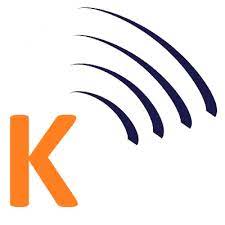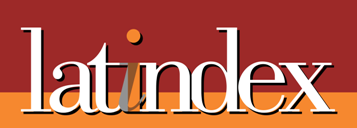OLYMPIKA Magazine
OLYMPIKA MAGAZINE (ISSN 2965-8519) is a publication identified with the healthy audience of Olympic sports; and as one of the only magazines of its kind in circulation in South America, OLYMPIKA is a source of pride for Brazilian sport!
OLYMPIKA MAGAZINE was created with the idea of sharing sports science with the global sports community. Whether you have a cell phone, a tablet, a notebook, or any device in your hand, responsive technology allows you to read research on Olympic sports easily at any time, anywhere. Original works linked to all areas of Olympic sport, as defined by the IOC - International Olympic Committee; and related areas, such as physical activity and fitness, among others, deserve to be highlighted among OLYMPIKA MAGAZINE articles. Going further: OLYMPIKA's partners offer sports products that match the interests of the internet user, allowing sports culture to literally reach the hands of the magazine user.
Welcome!
Read the EDITORS' LETTER
Support and get full access by clicking HERE
See SUBSCRIPTION information HERE
FOCUS AND SCOPE
As an open-access vehicle, we believe that the dissemination of science can be reconstructed to become more democratic - a science that is shared for wider consumption. However, subscription-based content has historically been better covered by libraries, and furthermore, there are established processes, budgets and culture for libraries to preserve purchased content, while freely accessible content is not guaranteed to be preserved. (1) For this reason OLYMPIKA opted for a hybrid system, encompassing both free-access material and material for subscribers. Regardless of this option, all journal content receives a persistent digital identification (ARK or DOI), is deposited in repositories and archived in scientific journals preservation networks (see more below).
OLYMPIKA MAGAZINE publishes original works linked to all areas of Olympic sports, as defined by COI(1). In addition, related areas are covered, such as physical activities, fitness, among others.
Manuscripts must fit into the following categories: literature review, case study, bibliometric review, action research and survey. News, conference reviews and interviews can also be published, as long as they meet technical standards for scientific texts. See the Submissions page.
The signed articles are the authors' responsibility and the opinions and judgments contained in them do not necessarily express the positions of the Editorial Board.
ENGLISH VERSION
OLYMPIKA MAGAZINE accepts contributions from all over the world as long as they accompany the original English version of the work. The relevance regarding the internationalization of journals was a central theme of the IV Annual Meeting of SciELO (2), as well as a relevant topic discussed in the scientific editorial environment.
The internationalization of academic journals is one of the lines of action that SciELO has been promoting as a priority in recent years, alongside the strengthening of professionalization and financial sustainability. The achievement of these lines of action is considered essential by the program so that indexed journals increase the efficiency and quality of the editing, publication and dissemination processes, following the state of the international art and as a necessary condition for a leap in national and international visibility and credibility.
PEER REVIEW PROCESS
Papers submitted for publication must comply with the journal's editorial guidelines (see Guidelines for Authors). They will be accepted or rejected based on the opinion of the Editorial Board, which may, at its discretion, make use of ad hoc consultants.
FREQUENCY
The journal fully adopts the rolling pass publication format of submitted manuscripts.
COPYRIGHT
The copyright of the manuscripts remains the property of the authors, who cede the right of first publication to the journal. Authors must properly reference the journal in subsequent manuscript publications.
Manuscripts submitted that contain parts of text extracted from other publications must comply with minimum limits to ensure the originality of the work. The manuscript that contains a reproduction of one or more figures, tables, drawings and instruments extracted from other publications will only be sent for analysis if accompanied by written permission from the copyright holder of the original work for the reproduction specified in OLYMPIKA MAGAZINE. Permission must be addressed to the author of the submitted work. Under no circumstances OLYMPIKA MAGAZINE and the authors of the works published in this journal will transfer rights thus obtained.
REPOSITORY
OLYMPIKA MAGAZINE recommends (not necessarily) that authors deposit preprints of their work in an appropriate data repository prior to submission. Or authorize OLYMPIKA MAGAZINE to do it.
ARCHIVING
OLYMPIKA MAGAZINE uses the PKP/OJS platform - Public Knowledge Project that maintains the PKP Preservation Network (PKP PN) to digitally preserve OJS journals. The LOCKSS program offers decentralized and distributed preservation, continuous and perpetual access, and preservation of the authentic original version of the content. The PKP PN ensures that journals can be preserved for long-term access (STORED DATA).
PID (doi, ark, urn, etc.)
OLYMPIKA MAGAZINE uses persistent object identifiers (PIDs) (5), which are codes unique to our articles, which can be URNs, PURLs, DOIs, ARKs and/or others and represent a globally standardized identification mechanism to name any object, concept or "thing " with a globally unambiguous persistent name.
ACCESSIBILITY
Through several specific functionalities, with the use of artificial intelligence, OLYMPIKA MAGAZINE makes the content of articles accessible to millions of users with disabilities or difficulties in navigating the internet.
According to data from the CDC – Center for Disease Control (6), one in four North Americans live with a disability, that is 25% of the population!
Table. Adults in the US live with a disability.
| Mobilidade | 13,7% |
| Cognição | 10,8% |
| Vida independente | 6,8% |
| Audição | 5,9% |
| Visão | 4,6% |
| Autocuidados | 3,7% |
The Accessibility logo was created by the Department of Public Information of the United Nations - UN - to raise awareness of the universe of people with disabilities. This logo will appear on the pages of OLYMPIKA with available accessibility features.
EXCLUSIVE EBOOK READER
OLYMPIKA READER is an app (PWA) to read books and magazines.
The App is a Reader with resources suitable for digital applications, designed for use on a wide range of devices, such as computers, cell phones, tablets, etc.
Reader Advantages:
- HTML format (works on any device)
- Responsiveness (adapts to any screen size)
- Attractive and lightweight visual formatting (especially tables and images)
- Functional links (you can access other web documents from the Reader)
- AND MORE: Interactive, printable, updatable, storable, accessible!
REFERENCES
(1) SPORTS. International Olympic Committee, 2023. Disponível em: <https://olympics.com/en/sports/>. Acesso em: 14/11/2023.
(2) PACKER, AL. The internationalization of journals was the central theme of the IV Annual Meeting of SciELO. Scielo in Perspectiva, 2016. Available at: <https://blog.scielo.org/blog/2014/12/16/a-internacionalizacao-dos-periodicos-foi-tema-central-da-iv-reuniao-anual- do-scielo/#.YU8-LbhKhdh>. Accessed on: 25/09/2021.
(3) (3) SciELO Scientific Electronic Library Online. Guia para Publicação Contínua de artigos em periódicos indexados no SciELO. Available from: https://wp.scielo.org/wp-content/uploads/guia_pc.pdf [Accessed 10th October 2021].
(4) PKP Preservation Network. Public Knowledge Project, 2014. Available at: <https://pkp.sfu.ca/pkp-pn/>. Accessed on: 24/09/2021.
(5) Wikipedia.Persistent Identifier, 2024. Available at: <https://en.wikipedia.org/wiki/Persistent_identifier>. Accessed on: 27/11/2024.

Citius - Altius - Fortius - Communiter
INDEXING
 |
 |
 |
 |
 |
 |
 |
|






